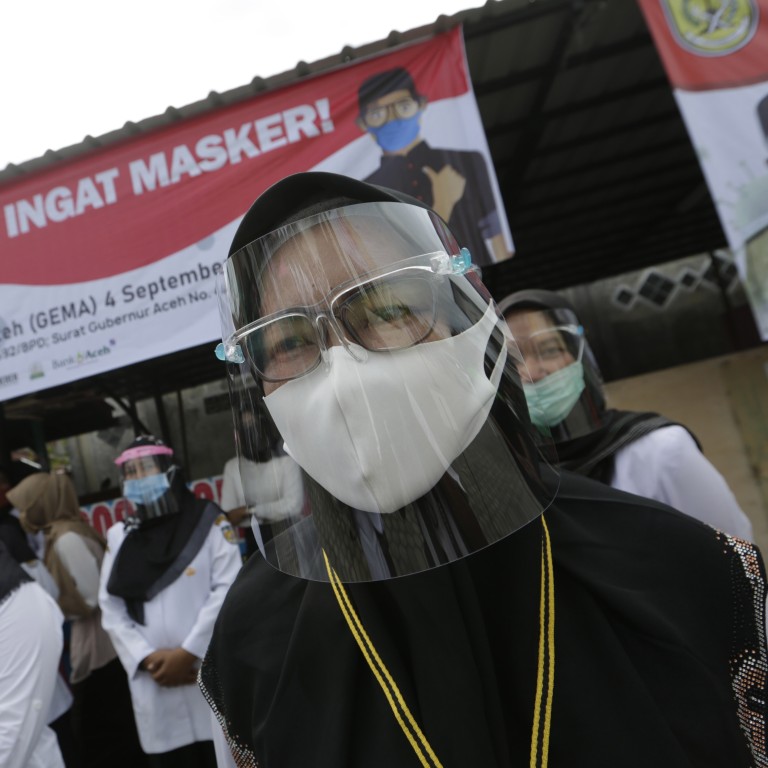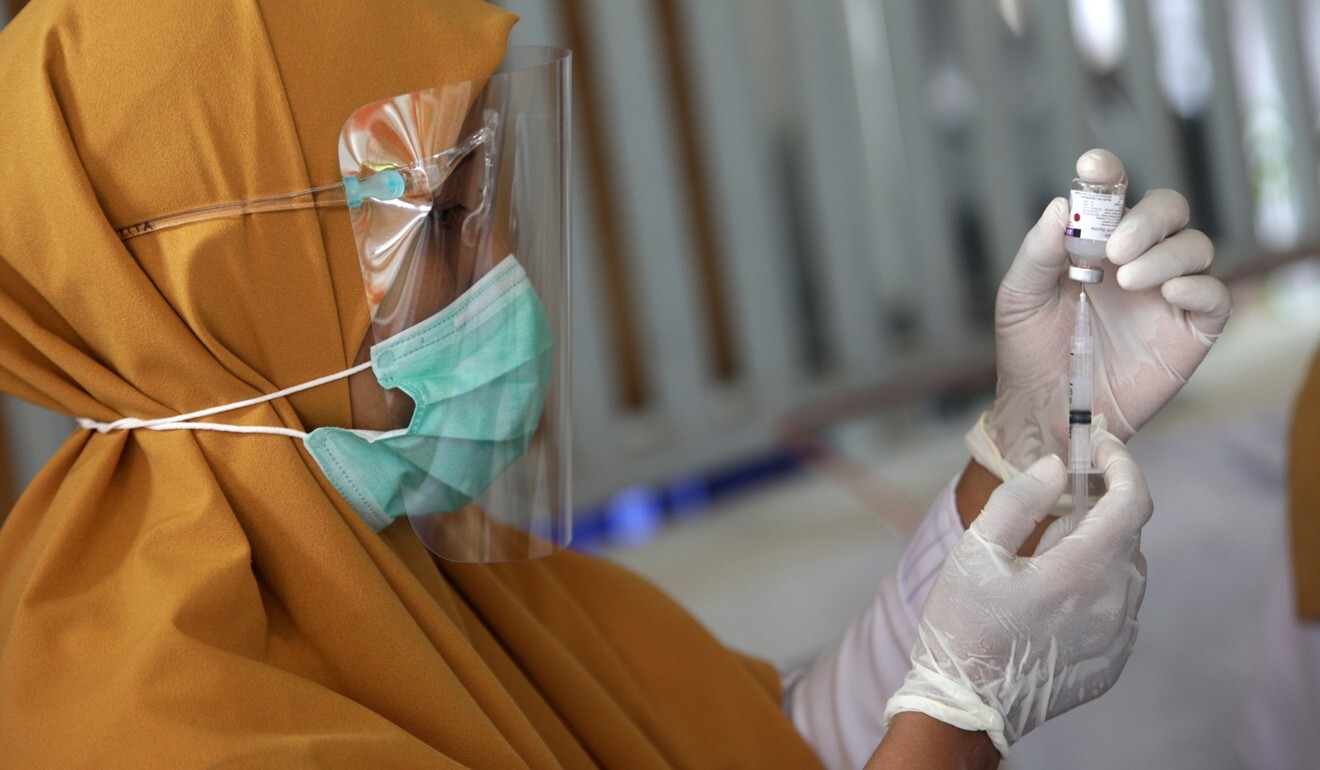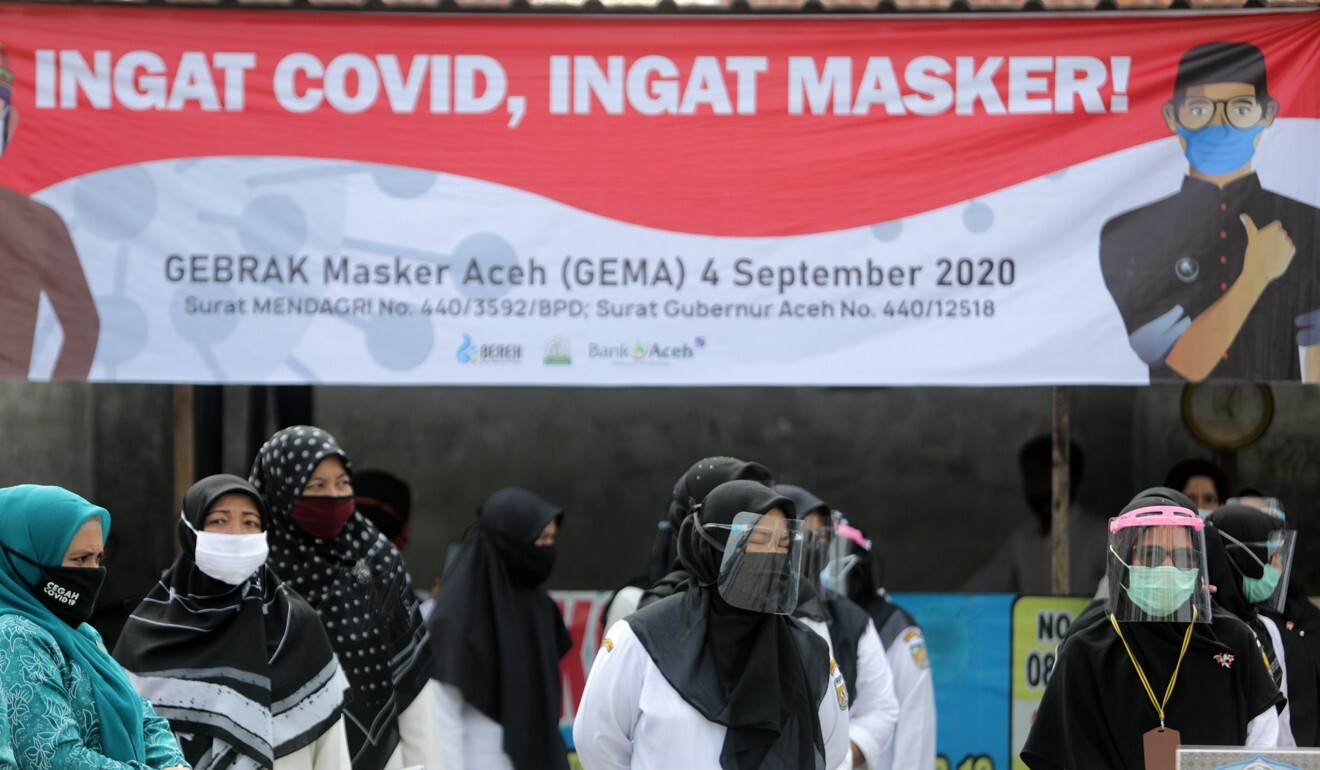
Coronavirus Indonesia: infections could reach 1 million despite lower official tally, expert warns
- Indonesia’s official caseload remains below 200,000 but one epidemiologist claims low testing rates make this number inaccurate
- The country has already reached another grim milestone, as more than 100 doctors have died while fighting the pandemic
The Indonesian Health Ministry’s website on Wednesday reported 3,075 new cases, bringing the country’s total to 180,646. Its 7,616 deaths are the most in Southeast Asia.However, according to Iwan Ariawan, an epidemiologist from University of Indonesia, Indonesia’s low rate of testing means the more accurate caseload could be between five times and 10 times the official figure.
“When the accumulated cases that are reported [reach] the 200,000 region, the real total number of accumulated cases … is highly likely to have reached 1 million,” Iwan said.
According to Our World in Data, an online scientific publication that works in collaboration with University of Oxford researchers, Indonesia has one of the world’s lowest per capita testing rates, testing 58 people per 1 million population daily. By comparison, Malaysia tests 315 people per 1 million population daily.
In August, Indonesia added 66,420 new cases, an increase of 61 per from July. At that rate, Indonesia’s official caseload could reach 200,000 in coming weeks.
The recent Eid Fitr and Eid Adha holidays as well as Independence Day celebrations have been identified as factors in the increased number of infections.
“From our observations, during the long holidays, the movement of people increased and two weeks following that, the number of Covid-19 cases spiked,” Iwan said, adding that more people have been visiting markets and returning to offices.
Indonesia detects more infectious coronavirus mutation
The country’s health care workers have been acutely affected, with 102 doctors, nine dentists and 70 nurses dying of Covid-19, the Indonesian Medical Association (IDI) said.

Adib cited several factors for the high casualty rate among Indonesian health care workers, including heavy workloads and insufficient time to rest, resulting in exhaustion.
He urged hospitals to devise schedules to better manage fatigue, which makes workers more vulnerable to the virus, and to provide more personal protection equipment, better ventilation and more air purifiers.
Experts have refuted claims that more widespread testing is the sole explanation for increased infections after clusters emerged in schools, industrial workplaces and households.
“I am personally no longer buying the idea of ‘increased testing’ in explaining more Covid-19 cases in Indonesia,” said Muhammad Habib Abiyan Dzakwan, a researcher from the Centre for Strategic and International Studies disaster management research unit. “I believe that the infections grow way faster than the increase in PCR testing.
“I am afraid that we’re almost hitting rock bottom,” he said. “Almost all provinces reported … that isolation rooms in their referral hospitals are fully occupied with the Covid-19 patients.”
Among the new clusters, more than 600 Islamic school students in East Java’s regency of Banyuwangi have tested positive for the coronavirus, a health ministry official said on Tuesday, the latest outbreak as classrooms reopen across the country.

Indonesia has already been hit hard by mass infections. The Darussalam Blokagung boarding school initiated a two-week quarantine of some 6,000 students after at least 664 pupils were infected.
In July, nearly 1,300 people at an Indonesian military academy tested positive. LG Electronics last week shut its plant at the Cikarang industrial zone, Bekasi in West Java for a week after 242 workers were infected.
Indonesia’s mixed couples in limbo due to borders shut by virus
Finance Minister Sri Mulyani Indrawati recently said the economy was projected to enter a recession in the third quarter this year, while negative growth is anticipated to continue into the fourth quarter. The government has forecast the economy to contract between 1.1 per cent and 0.2 per cent this year.
Habib described as “alarming” the fact that the Indonesian government has an economic projection but no estimate for the number of deaths from the pandemic.
“If we have that particular target [of casualties], we would definitely work harder and make more accurate interventions to stop it before reaching the maximum number,” Habib said, adding that he did not expect the government to take the necessary measures to contain the outbreak.
“Instead, [the government] tried to expand the relaxation [of social restrictions] including the reopening of cinemas in Jakarta, or encouraging travelling to other cities.”
Stolen corpses, rejected masks: Indonesia’s coronavirus calamity worsens
Habib also suggested Widodo has pinned his hopes on a vaccine to contain the pandemic.
Indonesia and China last month agreed Chinese drug maker Sinovac Biotech, working with Indonesia’s state-owned PT Bio Farma, would send up to 40 million doses of a vaccine to the Southeast Asian country in November. Widodo also said earlier this week that Indonesia aims to begin producing its locally developed vaccine by the middle of next year.
“I would say we are too focused on gaining the vaccine … and forgetting there are a lot of urgent needs to be fulfilled, such as expanding the free PCR testing, or emergency hospitals and isolation rooms,” Habib said.
Iwan Ariaman, the epidemiologist from University of Indonesia, agreed, warning “there is no vaccine that passed clinical test phase three”.

